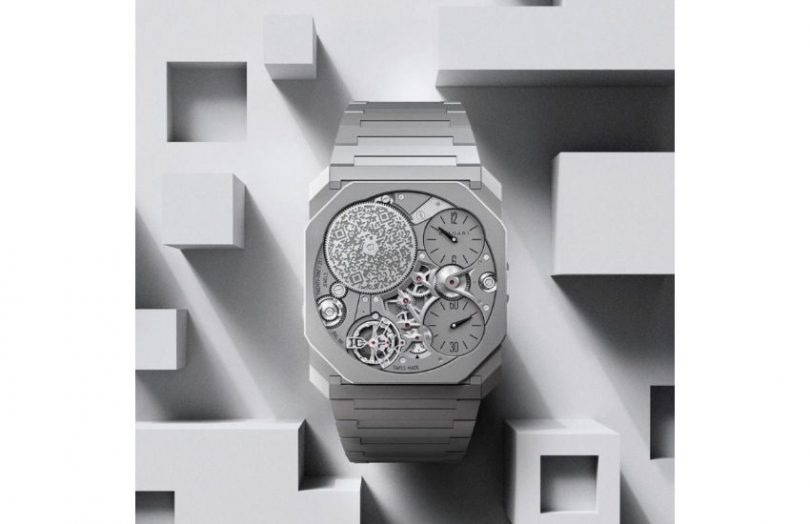Luxury jewelry brand Bulgari is launching an exclusive watch limited to ten editions. Each watch will have a QR code engraved that, when scanned, yields access to a unique non-fungible token (NFT) representing digital art.
The watch, Octo Finissimo Ultra, claims to be the thinnest mechanical watch in the world, measuring only 1.8mm in thickness. The technology involves innovative processes and equipment that highlight the watch’s futuristic positioning, which is enhanced by the integration of NFTs.
Besides the digital artwork, the NFT that’s accessed through a watch’s unique QR code also serves as a method of authentication. At a limited supply of ten and a cost is $440,000 (according to Gizmodo), it could be a magnet for counterfeiters. As such, scarcity and product authenticity must be protected to maintain the watch’s value, and NFT technology facilitates this.
Other luxury watch brands such as Breitling and Hublot have used similar technology to ensure product authenticity, mostly through the use of blockchain to implement digital passports. The passport technology is also an NFT but was previously used for functional rather than creative NFT applications.
On the other hand, Bulgari is making full use of the opportunity to tie creative content to the watch. Besides the NFT artwork, the QR code also gives access to information regarding the history, concept, design, and manufacturing process that underpin the watch’s production.
“This fabulous benchmark that we are setting today with the Octo Finissimo Ultra is in fact for me and for all the teams an apparently impossible dream to come true,” said Bulgari’s CEO Jean-Christophe Babin. “One that guarantees that Bulgari will forever be recognised as a company that has written some of the finest pages in Swiss watchmaking. And the fact that this is an Italian house makes us particularly proud.”
The launch is in partnership with the LVMH founded AURA blockchain consortium, which focuses on initiatives that use blockchain technology to fight counterfeiting in the luxury goods market as well as proof of sustainability. It recently announced plans to get involved in creative NFTs, and Temera, Luxochain, and Polygon Studios were also involved in the Bulgari project for that aspect. Hence there were two separate smart contracts, one on Aura’s private permissioned blockchain network and the artwork one on the public Polygon blockchain.
Bulgari is part of the LVMH luxury consortium, which until now, had not engaged much in NFTs beyond authenticity except for Hennessy, which sold exclusive cognac through NFTs. Yet, the opportunities in the industry will likely make it inevitable for other brands to soon get involved.
A report on luxury goods and the metaverse carried out by Morgan Stanley estimated that by 2030 metaverse gaming and NFTs could account for 10% of luxury revenues (equivalent to €50 billion or $60bn) and contribute towards 30% of profits.
Outside of fashion, “luxury cars” are heavily involved with creative NFTs. Lamborghini launched NFTs linked to space exploration, and McLaren is planning to launch luxury car NFTs with InfiniteWorld.






